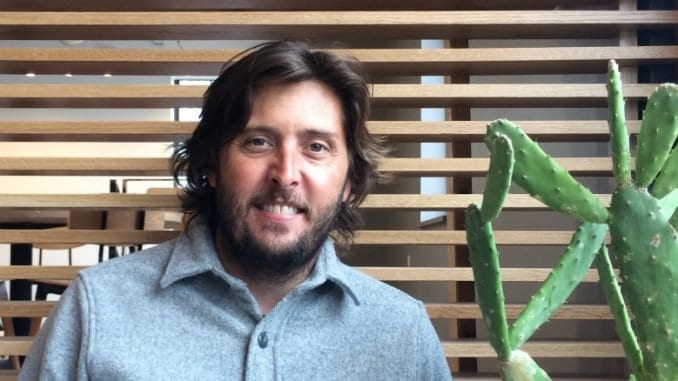
Alex Hall has opened five coffee shops in New York City over the last 10 years, bringing the Australian café model to the United States, and recently opened his newest shop in Des Moines, Iowa. He talks to us about the differences between coffee cultures, his struggles and successes, and advice for aspiring business owners.
BY JOSHUA DUSK-PEEBLES
SPECIAL TO BARISTA MAGAZINE
Alex Hall is the former owner of NYC’s Milkbar, Bluebird, and Brunswick. We sat down to discuss the journey that brought him from Melbourne, Australia to Des Moines, Iowa. Read on to hear his thoughts on the development of and differences between U.S. and Australian coffee cultures and shops.
Joshua Dusk-Peebles: How did you originally get into coffee?
Alex Hall: I started working at a nightclub in Melbourne 18 years ago. I liked it but I got tired of the hours. I didn’t want to work nights anymore so I got a job in a restaurant. When I started working there, I got thrown on the coffee machine—so I started learning. All restaurants in Melbourne have coffee machines; there are so many, it’s like they are just hanging from the rooftops. So it’s a great skill to have in Australia—it can open lots of doors for you.
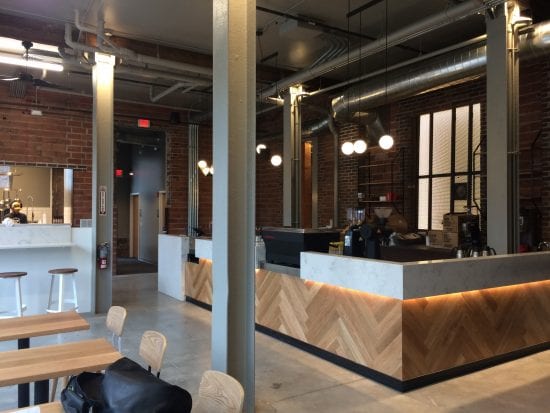
JDP: What brought you to the United States?
AH: I was offered a job managing the Corner Shop Café in NYC. My original plan was to take the skills I learned in the U.S. back to Australia with me. But when I got to New York, I realized that the U.S. was years behind Australia. So my plans flipped!
JDP: That was about 15 years ago. How do you think the two countries compare these days?
AH: Now coffee in the U.S. is ahead of Australia. Coffee in Australia is bland; it’s fine, it’s good, but it’s boring.
But that is just the coffee—American café design and food is definitely behind Melbourne. Maybe not so much in NYC. But almost everywhere else. It’s not like that there—you can go three hours outside of Melbourne and find an incredible café.
JDP: Is that just around Melbourne?
AH: No. It’s every city in Australia now. The big thing is the quality of the produce. Everywhere has this light, healthier fare. And there are literally cafés side by side by side. The difference between them used to be the coffee. Then everybody’s coffee became great. Then the difference was design. Then everybody’s design became great. Now it’s high-quality food.
Bringing that same system to the U.S. improves the quality of everything. It starts a chain reaction. It just takes one person to bring it. That’s what I started doing in New York.
JDP: So you brought that to the U.S.? Tell me about that.
AH: I opened five shops in New York: Milkbar, Bluebird, and three Brunswick stores. Milkbar was the first—it’s known as the first Australian-style full-table-service café in the U.S.
JPD: Did you have a favorite child? Which one of your cafés did you like best?
AH: Milkbar always had positive energy. I had so many great employees there—some of them for nine years! We got into a neighborhood that was developing and it never got into any trouble. There were never any big disasters or surprises. I started my relationship with Counter Culture there and I’m excited to continue that relationship at my new cafe in Des Moines, St. Kilda.
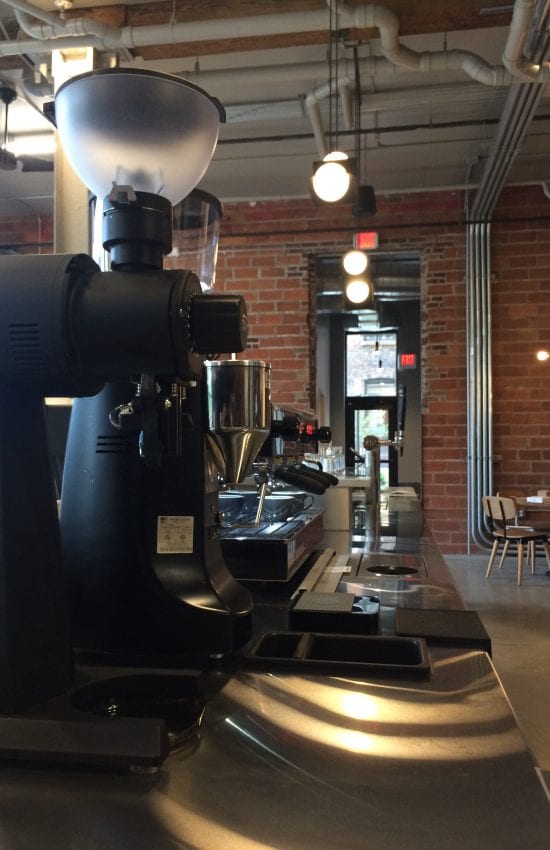
Really, St. Kilda is most like Milkbar. It’s got the same positive energy. I worked as a waiter six days a week for two years at Milkbar. I was never in another shop enough to put my stamp on it like I was at Milkbar. But I want to do that at St. Kilda. So I am back to being here six days a week to manage the vibe, quality, and energy.
JDP: Bluebird was a counter-service shop while Milkbar was a table-service café. Can you give me pros and cons for each?
AH: The café model lowers labor cost. You can pay each employee less because it gets more than made up in tips. Servers could make $25/hour in tips at Milkbar. And a café has more energy and flow. You can put a check down and move a table. Plus, you make a daft sight more money. You make more money on food. And you get a broader spectrum of customers at a café.
Really, the counter-service coffee shop is almost an outdated system; it’s more like a dinosaur. Why do I have to stand in this line and have it in a to-go container and listen to somebody going, “Steve, Steve.”
JDP: What is your favorite way to drink coffee?
AH: Half a cup of single-origin African coffee in 7 ¾ oz Duralex glass. It’s pretty, it has a good lip, you can smell the coffee, and it cools to a good drinking temperature fairly quickly. So nice.
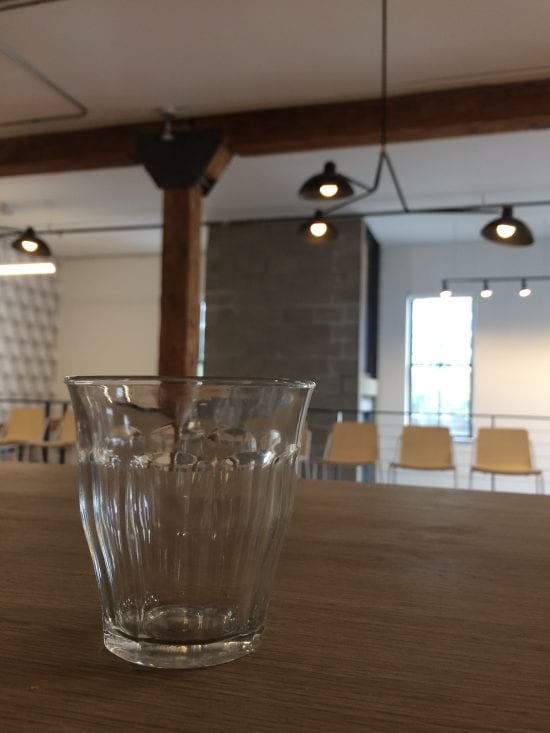
JDP: What is one piece of advice you would give to someone looking to open a cafe?
AH: You have to put 110 percent into every single aspect—not just the coffee, every aspect. Permits, location, design, everything. You have to live and breathe it. It’s all about building relationships with good suppliers and partners. Find people who know more than you do about a specific thing and trust them. And pay them on time. Always do what you say you’re gonna do. Be nice to people. The nicer you are, the more they help you out.
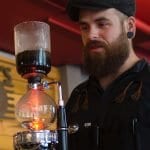 ABOUT THE AUTHOR
ABOUT THE AUTHOR
Joshua Dusk-Peebles works for Counter Coffee Culture in Chicago. He loves learning about coffee and sharing what he has discovered with others. He can be reached at dusk.peebles@yahoo.com or found online at duskcoffee.com.

